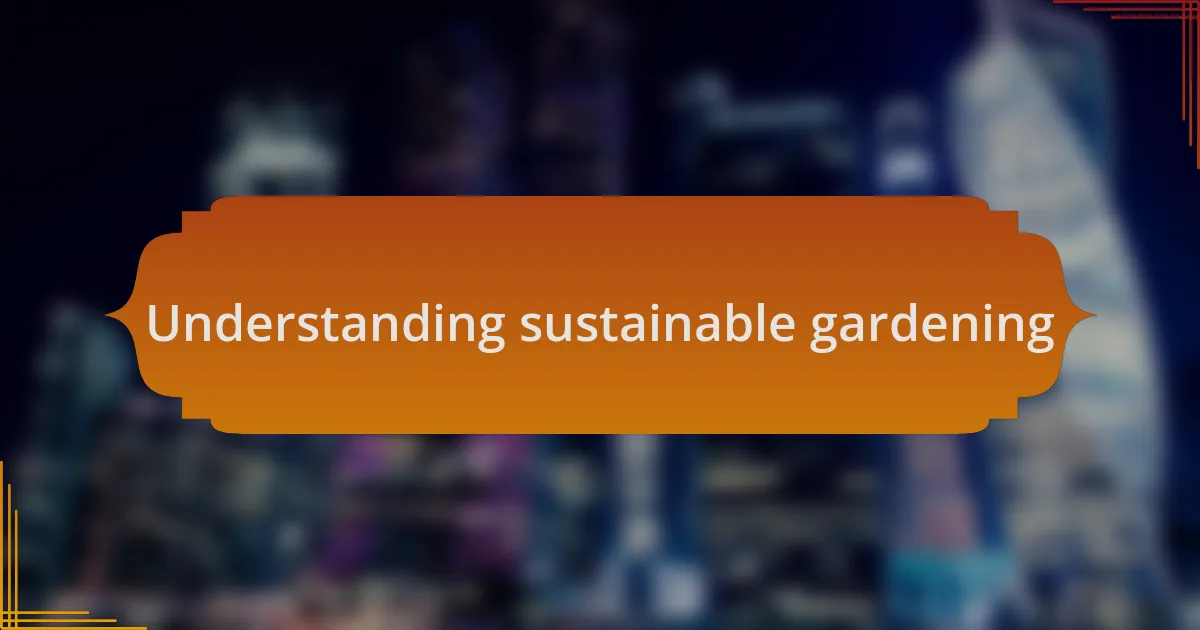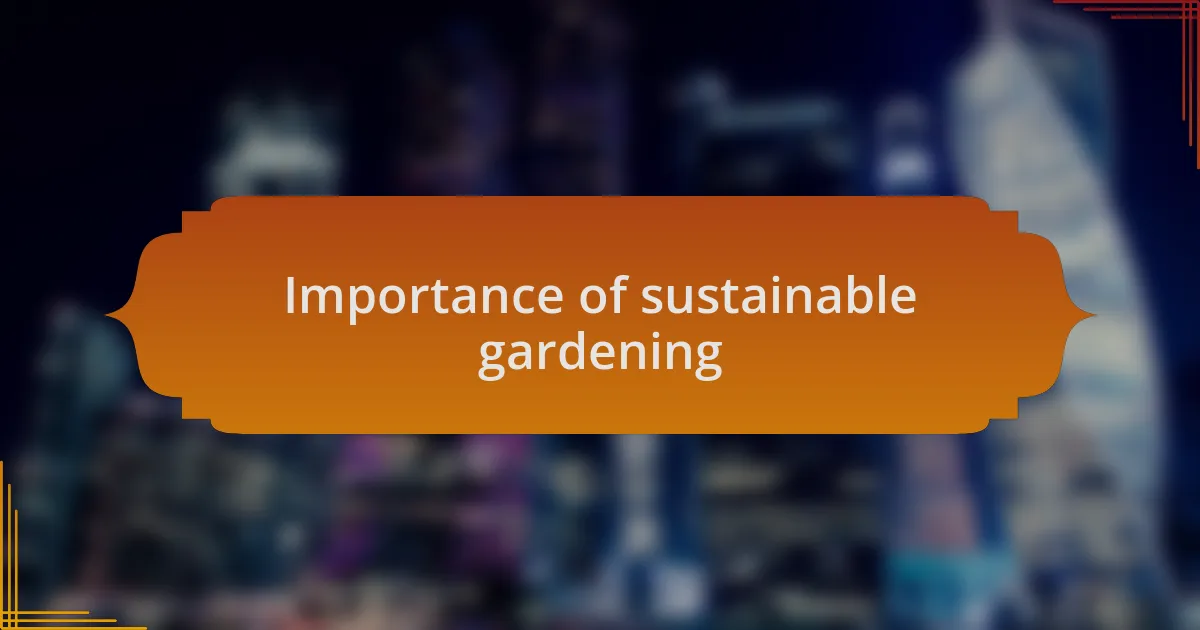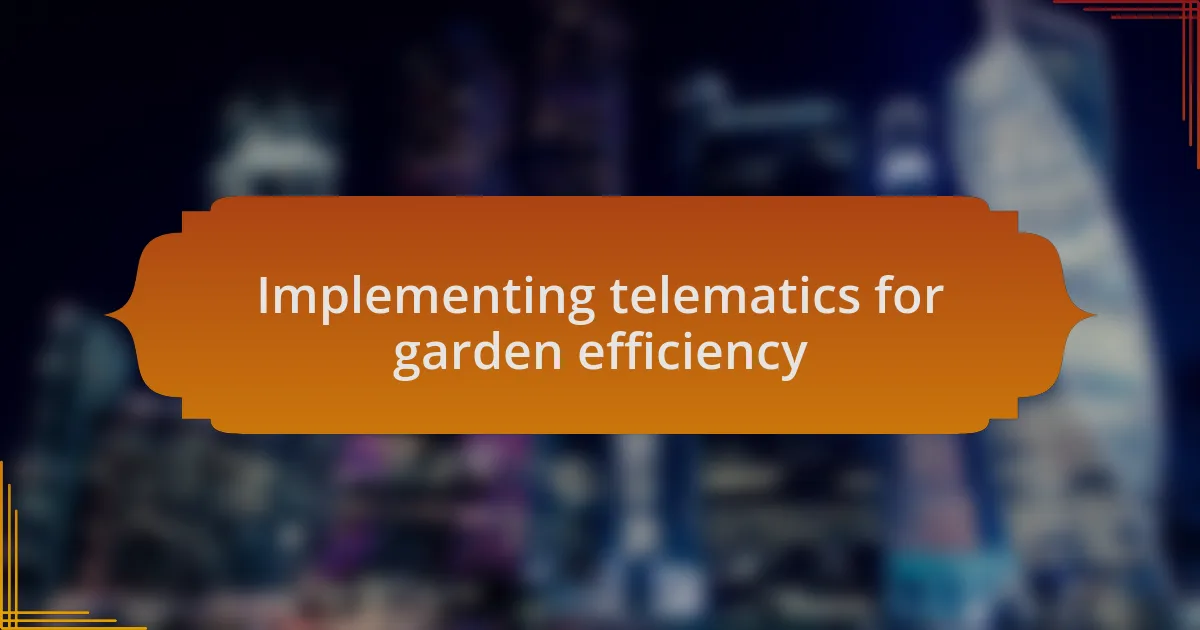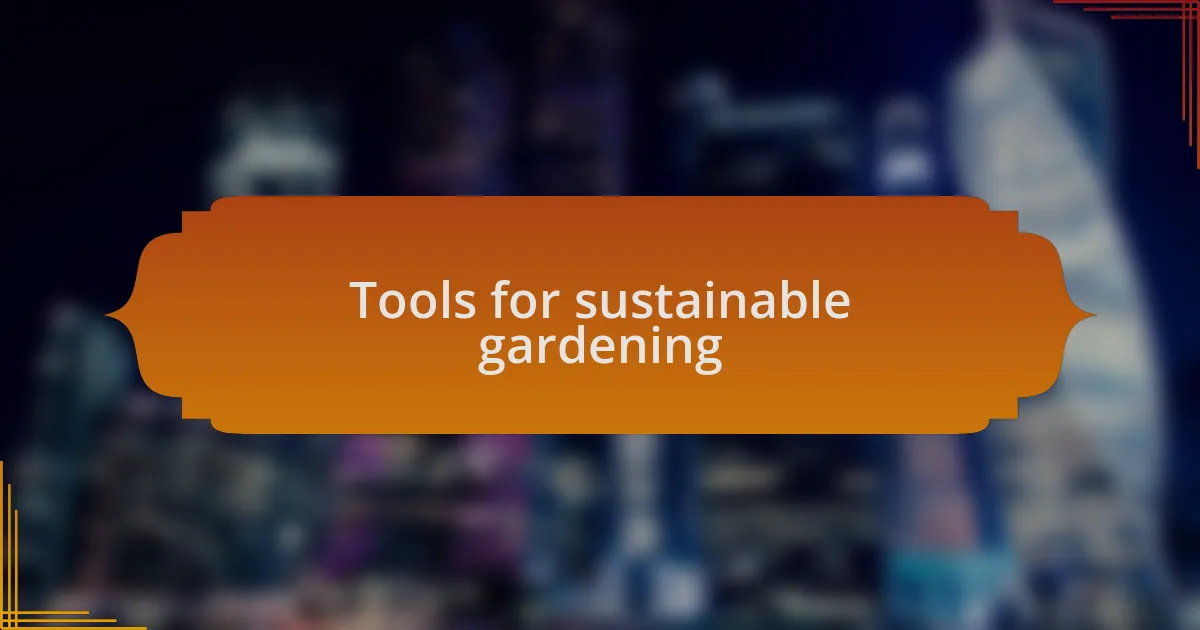Key takeaways:
- Sustainable gardening fosters a balanced ecosystem that enhances biodiversity, water conservation, and local food production.
- Implementing technology like telematics improves garden efficiency by monitoring resources and notifying about environmental conditions.
- Using specific tools such as compost tumblers and rainwater collection systems significantly contributes to sustainable practices.
- Composting reduces waste while enriching soil, showcasing how simple actions can have a substantial positive impact on gardening sustainability.

Understanding sustainable gardening
Sustainable gardening revolves around creating a balanced ecosystem that nurtures both plants and wildlife. I remember starting my own garden, where I layered organic materials, and was amazed by how quickly the soil improved. Isn’t it fascinating how nature can thrive when we work in harmony with it?
Understanding sustainable gardening also means recognizing the importance of biodiversity. When I planted a variety of flowers and vegetables, I noticed an increase in pollinators like bees and butterflies visiting my garden. This made me wonder: how much more can we attract nature by simply diversifying our plants?
One key aspect is water conservation; I learned this the hard way through a drought. By implementing rain barrels and drip irrigation, not only did my garden flourish, but I also felt a deeper connection to my water usage. Have you ever considered how every drop counts in maintaining a sustainable garden?

Importance of sustainable gardening
Sustainable gardening is crucial in fighting climate change. I recall a summer when my community experienced intense heatwaves; my garden became a small oasis. It felt rewarding to know my choice of drought-resistant plants not only thrived but also contributed to the overall health of the environment. Have you thought about how your own gardening choices can combat environmental challenges?
Another important aspect of sustainable gardening is the reduction of waste. I once experimented with composting kitchen scraps, thinking it would just be a fun project. Instead, I discovered it significantly reduced what I tossed in the trash and enriched my soil like nothing else. Isn’t it surprising how something as simple as composting can create a cycle of renewal right in our backyards?
Furthermore, sustainable gardening promotes local food production. I remember the joy of harvesting my own tomatoes after a season of careful nurturing. Knowing they were free from harmful pesticides and packed with flavor made the effort truly worthwhile. How many benefits can we reap by growing our food sustainably in our urban spaces?

Implementing telematics for garden efficiency
Implementing telematics in garden management has transformed how I view efficiency. I recently integrated a soil moisture sensor that connects to my phone, allowing me to monitor water levels remotely. It’s incredible how just a small device can prevent overwatering, saving not only water but also ensuring my plants thrive without stress. Have you ever thought about how technology could simplify your gardening routine?
On another occasion, I used a telematics system that tracks weather conditions and sends alerts for impending frost. The first time I received a notification, I swiftly covered my delicate seedlings, saving them from destruction. This proactive approach felt empowering; technology not only safeguarded my plants but also allowed me to respond quicker than ever before. How much more confident would you feel in your gardening decisions with real-time data at your fingertips?
Lastly, the data collected from these telematics systems has helped me analyze growth patterns over seasons. By reviewing this information, I saw which plants flourished in specific spots and adapted my layout accordingly. This hands-on experience made me realize that, with the right tools, I could become a more informed gardener, optimizing my space for greater productivity. Have you considered what insights you might uncover with a little technological help?

Tools for sustainable gardening
When it comes to sustainable gardening, having the right tools can make a world of difference. I recently acquired a compost tumbler, and it has transformed my kitchen scraps into nutrient-rich compost in just a matter of weeks. I remember the first time I used it; watching the natural process unfold felt incredibly satisfying. Have you ever felt that thrill of turning waste into something beneficial for your garden?
Another essential tool I can’t recommend enough is a rainwater collection system. I installed a simple barrel at the end of my downspout, and it fills up quickly during rain. The first time I watered my plants with rainwater, I felt a sense of accomplishment knowing I was using a free, natural resource. How rewarding is it to reduce your environmental impact while nourishing your plants at the same time?
Lastly, I’ve invested in hand tools made from sustainable materials. My wooden hand trowel feels great in my hand, and the craftsmanship reminds me of the importance of supporting eco-friendly products. Using these tools brings me closer to nature; every time I dig into the soil, I feel the connection between our environment and my garden. Have you explored alternatives that not only work well but also align with your values?